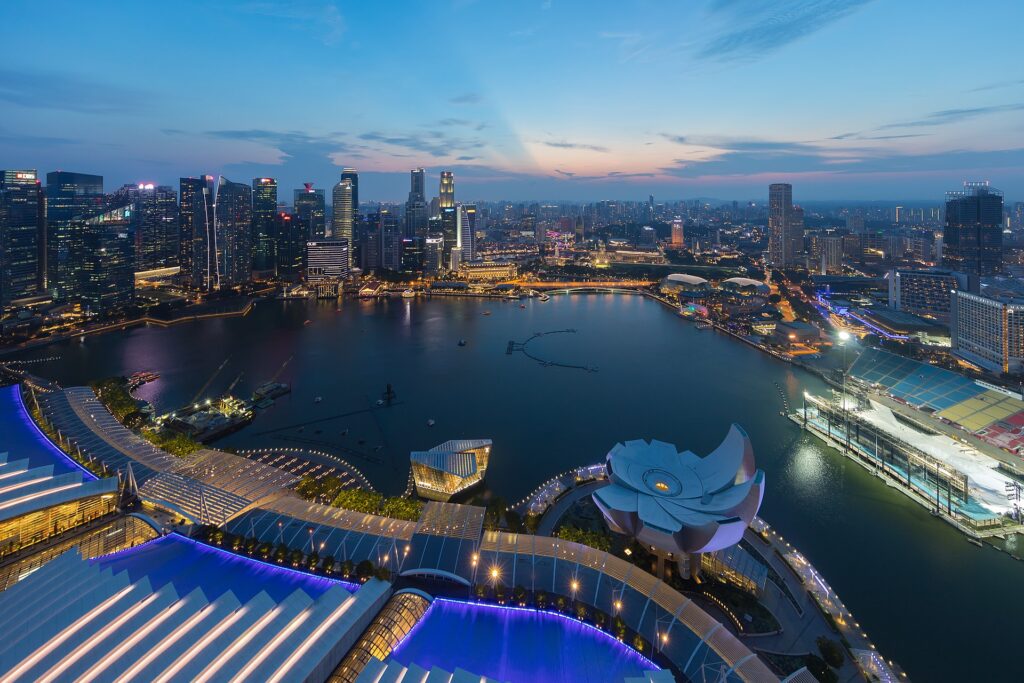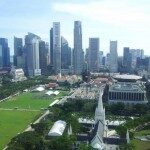

Singapore recently announced a move to extend its regulation of local media to cover Internet news websites. The regulation came into effect on 1 June 2013, and will require all websites that report on Singaporean news to be licensed in the same manner as other traditional media in the city state, such as TV, radio and newspapers. https://www.mda.gov.sg/NewsAndEvents/PressRelease/2013/Pages/28052013.aspx


The Media Development Authority (MDA), the government statutory board which governs broadcast content in Singapore, stated that a site would require a license if: (i) it reports at least one article per week about Singapore – i.e. a site running any news, intelligence, reports of occurrence, or any matter of public interest, about any social, economic, political, cultural, artistic, sporting, scientific or any other aspect of Singapore in any language – over two months, and (ii) has more than 50,000 unique visitors each month, over two months. Websites will also require a ‘performance bond’ of SGD50,000 – small change to the big media players, but a sharp prohibition for small and medium enterprise (SME) players.
The Change
The announcement marks a regulatory (if not philosophical) change from the tightly-controlled state’s stance on Internet censorship and freedom of speech. The MDA has always strived for a “light touch regulatory framework,” which assuaged Singaporean fears of censorship by the nation’s content regulators.
This latest move to license online news sites seems to have abandoned this approach, and many Singaporean media watchers are crying foul, and demanding that the government rethink the new rules. https://publichouse.sg/categories/community/item/884-govt-reneges-on-light-touch-promise However, Singapore Minister for Communications and Information (MCI) – the Ministry that oversees the MDA – still insists that the new moves are still a “light touch”, and the regulations are aimed at applying a “consistent regulatory framework” to both traditional and online media. https://www.todayonline.com/singapore/new-mda-licensing-regime-still-light-touch-regulation-yaacob
The Impact
Socio-political punditry on Singaporean issues have flourished online, largely because of the perception that traditional media in Singapore is suppressed. In one recent court case, journalists from traditional media outlets had to resort to asking online media sources to confirm that a news event had actually happened. https://yawningbread.wordpress.com/2012/12/25/vox-squawk/ The news that these pundits might need a license to continue commenting on Singaporean issues – that they might even be penalized for their success in garnering a large viewership – was met with anger and frustration. There were a number of protest demonstrations, both online in a #FreeMyInternet campaign, and in public with a demonstration at Hong Lim Park calling for the immediate withdrawal of the new rules. https://www.todayonline.com/singapore/bloggers-stage-protest-call-new-mda-rules-be-withdrawn
However, the MDA announced only ten online media sites will require licensing, and all, save one (Yahoo! Singapore news), are owned by local media companies. https://www.mda.gov.sg/NewsAndEvents/PressRelease/2013/Documents/Annex.pdf MDA said that they do not intend to add any more to the list at the moment.
The Implications
This mandate for news websites to obtain a license adds uncertainty and unpredictability into doing business in Singapore. Nevertheless, it is only natural for a regulator to support regulatory consistency and level the playing-field for content and creative development.
The free flow of information is the lifeblood of modern economies, as data is both a currency and a commodity. Initial reactions from companies located in the region show that these new regulations introduce barriers to data flows into Singapore. Meanwhile, others are questioning Singapore’s capacity as a site for building and hosting data centres for cloud computing. This latest move threatens to undermine Singapore’s position as a good place to do business and its increasing strengths as a cloud computing and data analytics hub. Further developments demand watching.
zp8497586rq